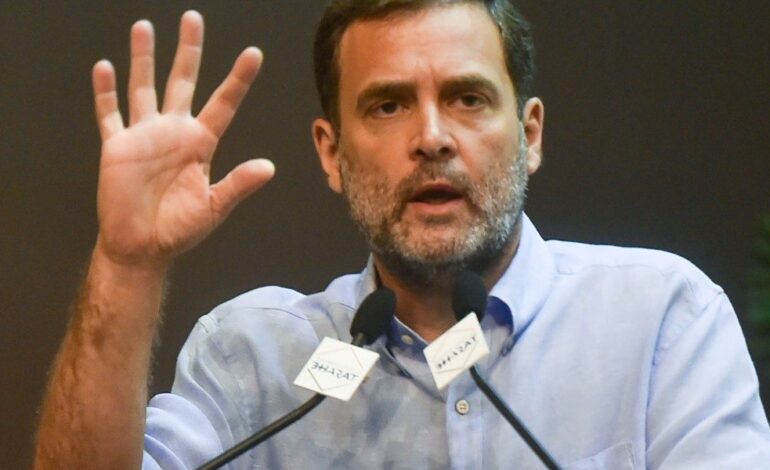
The Bharatiya Janata Party’s blunders over the past week have set in motion a political churn that is pregnant with possibilities. First, recent developments have proved to be a boon for Rahul Gandhi in that it has established the scion of the Nehru dynasty as a leader in his own right. Secondly, it has brought together the Opposition forces like never before. And lastly, it has galvanised the Congress party. To sum up, recent developments indicate that change is in the air. Delhi’s political circles are abuzz with an energy seldom seen in recent times.
Hemmed into a corner over the Adani issue, the BJP at first tried to tide over it with its trademark arrogance. But when that failed to dam the barrage of negative publicity and speculation around government-corporate nexus, the BJP decided to isolate Rahul Gandhi. The Narendra Modi-led government was already seething with anger over the success of Rahul Gandhi’s vibrant Bharat Jodo Yatra. Despite naysayers and a media blackout of the yatra, it showed Rahul Gandhi in a new and favourable light. His stamina and fitted white T-Shirt only added to his newfound charisma. Even a biased media that used to regale their audience by taking cheap potshots at Rahul Gandhi stopped calling him Pappu. Images of the man with just a T-Shirt under biting cold did not give them a chance to mock him.
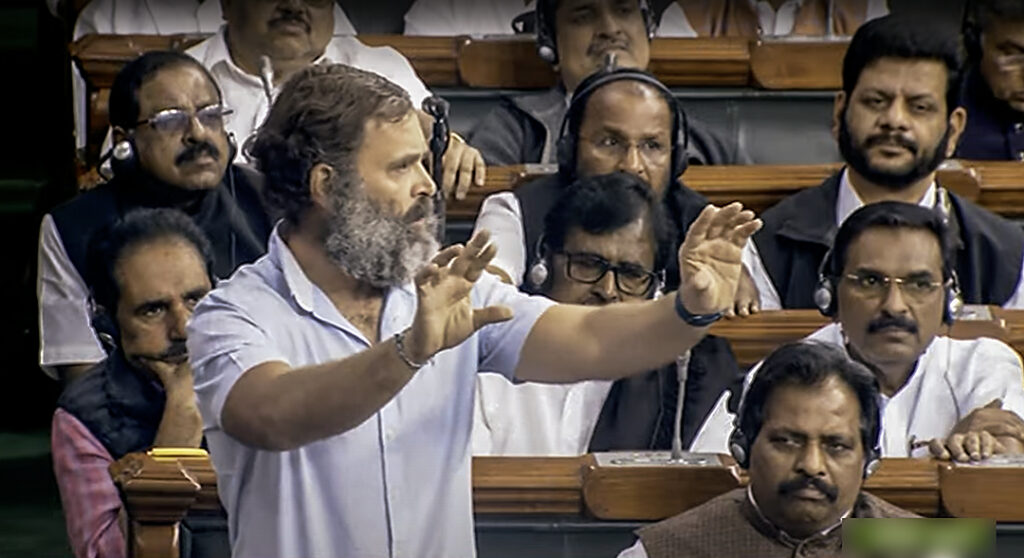
Threatened by Rahul Gandhi’s growing street cred [acceptance by the general public], the BJP tried to put him down by other means. The Delhi police reached his house to question him about his statement in Kashmir during the yatra about women “still being sexually assaulted” in that region. They apparently wanted to know the names and identities of the affected women so that they could take appropriate steps for their safety. Coming 45 days after the yatra ended, Congress leaders termed the police action as unprecedented, and said it was sheer harassment. Even leaders of the Aam Aadmi Party, a direct political rival of the Congress in Delhi, had to concede that misusing probe agencies against Rahul Gandhi was wrong.
Next came the conviction of Rahul Gandhi by the Chief Judicial Magistrate’s court in Surat and his subsequent disqualification as a Lok Sabha member from Kerala’s Wayanad. The conviction is largely seen as one obtained under mysterious circumstances and the kind of sentence he has been given is perceived as peculiar. This has had an unintended impact as far as the BJP is concerned — that of uniting Opposition parties. In the direct aftermath of this, 14 political parties approached the Supreme Court with a petition alleging that agencies like the Central Bureau of Investigation (CBI) and the Enforcement Directorate (ED) were targeting only opponents of the BJP. Judges led by the Chief Justice of India, D.Y. Chandrachud took note of the submission of senior advocate Abhishek Manu Singhvi, and listed the case for April 5. In Feburuary, the Chief Justice had described the basic structure of the Constitution, laid down by the Supreme Court in the 1973 Kesavananda Bharati judgment, as the North Star that guided and given direction to the implementers of the Constitution when the way ahead was convoluted. This is being held by the detractors of the current regime as a metaphor for the current times and the kindling of a hope that the Supreme Court will act as a North Star when the time comes.
The parties which filed the case in the Supreme Court include the Congress, the Trinamool Congress, the Janata Dal-United, Aam Aadmi Party, the Bharat Rashtra Samithi, the Rashtriya Janata Dal, the Samajwadi Party, the Shiv Sena (Uddhav Thackeray faction), the National Conference, the Nationalist Congress Party, the Left parties and the Dravida Munnetra Kazhagam. Each of these parties has had to face the wrath of the BJP in one way or the other. The fact that Arvind Kejriwal joined the Opposition ranks is significant as his former deputy Manish Sisodia was the latest victim in a growing list of Opposition leaders being intimidated, raided or harassed by central agencies.
Stalin backs Rahul
Last week, in a closed door meeting at Anna Arivalayam, the DMK headquarters in Chennai, party president and Tamil Nadu Chief Minister M.K. Stalin declared that he would stand up for Rahul Gandhi and invited the views of senior party leaders on his decision. According to a DMK insider, an overwhelming majority of the leaders vehemently supported his stand. Stalin warned them that if they take this position, they might have to face retaliatory action from the BJP and its government at the Centre _ fund cuts to the State, the ED and CBI raids against party leaders, and so on. But according to the senior DMK representative, the party leaders were firm that they would stand up and fight unmindful of the BJP’s aggressive response. This meeting reflects the determination that is spurring many Opposition parties to join ranks and stand together. There is a recognition that it is no longer a fight for electoral gains but one for saving India’s democracy.
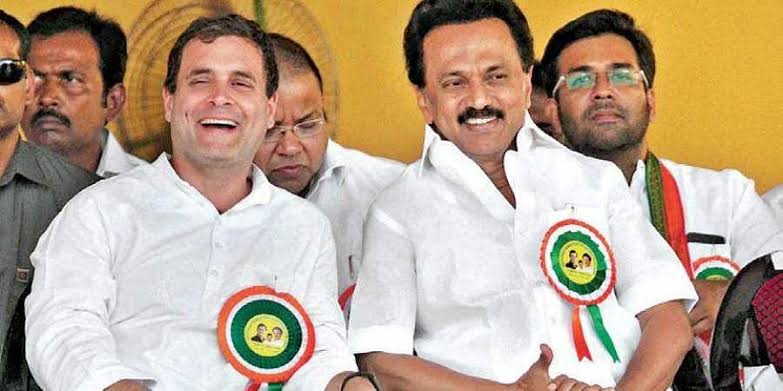
Democracy and political survival at stake
There is also an all-round admission that the Surat judgment was biased and unfair. Political leaders have begun to feel that if this could happen to a leaders like Rahul, then anything can happen to anybody. Responses expressing solidarity with Rahul Gandhi have created a newfound camaraderie even amongst rivals at the regional level as there is a serious apprehension about the survival of the non-BJP political class. The disqualification of Rahul Gandhi is seen by the Opposition leadrs as a sign of the crisis of democracy. It is still unclear what will happen to Rahul’s appeal against the Surat judgment and whether he will be able to context election. But these have taken the back seat because of the fact that he has emerged as a big political force around whom various political parties are rallying.
A weak case
As far as the case is concerned, even lawyers who are not strong supporters of the Congress or Rahul Gandhi have raises eyebrows. Whether the petitioner in the Surat case, Gujarat BJP MLA and former Minister Purnesh Modi, satisfies the conditions of being the aggrieved person in the defamation case is not clear. His petition argued that Rahul’s statement on Modis was an act of defamation against the Other Backward Community. Purnesh Modi is neither an OBC nor was he the intended target of the remarks made by Rahul Gandhi during an election rally in Karnataka in 2019 wondering why all thieves have the surname Modi, “Why do all these thieves have Modi in their names? Nirav Modi, Lalit Modi, Narendra Modi. And if we search a bit more, perhaps many more such Modis will come out,” he had said.

In a significant move, Lalu Prasad Yadav’s RJD held meetings in Uttar Pradesh denouncing this charge. RJD leaders pointed out that it was preposterous to consider Nirav Modi and Lalit Modi as members of the OBC community.
What has baffled the legal community is the fact that the petitioner himself had asked for a stay on the proceedings in March 2022. Some lawyers have pointed out that the case picked up momentuu only after Rahul started talking about a possible nexus between Narendra Modi and Gautam Adani in Parliament. Whatever the case may be, all these twists and turns are working to the advantage of Rahul and the Opposition. Rarely has a court order brought so much joy in the Opposition camp. It has also thrown the Adani issue into a fresh perspective. No matter how much the government wishes to move past the issue, the Adani scam has become a mainstream issue. Once Hindenburg Research broke the story around Adani, different media outlets have published stories that show Adani in a poor light. For instance, the latest story on the exposure of the Employees’ Provident Fund Organisation’s exposure to the Adani group shows that the Adani scam goes way beyond the stock market and affects the common man.
The Adani scam has also put Indian corporate and political activities on the global scanner. International media is keeping a watchful eye on the goings on in India. Foreign perception may or may not play a role in domestic affairs but there is no denying that foreign media have begun to join the dots. Columnists working in big papers, including the New York Times, have been making connections between Rahul Gandhi’s conviction and his criticism of Narendra Modi. His disqualification from Parliament is being seen as a direct result of his warning abroad about India’s democracy being under threat.
The BJP is in a bind. The only way it can wriggle out of it is by giving up the fight against the Congress. But it is too late now for any rethink. Any move to arrest Rahul is likely to lead to a mood of popular resistance reminiscent of the Emergency times. Nationalit arguments equating Adani with India are wearing thin. The narrative around this issue has reached a point of no return. Whether the momentum continues until the 2024 Lok Sabha elections remains to be seen. But there is no denying that the BJP is strengthening its main adversary at this point in time.
Subscribe to our channels on YouTube & WhatsApp


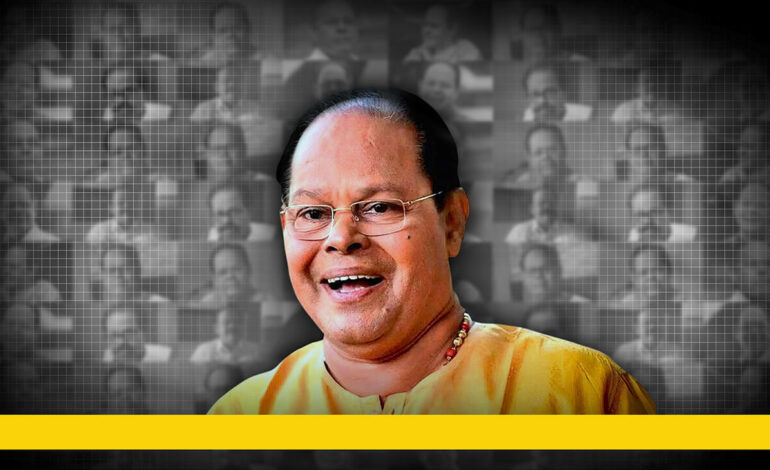
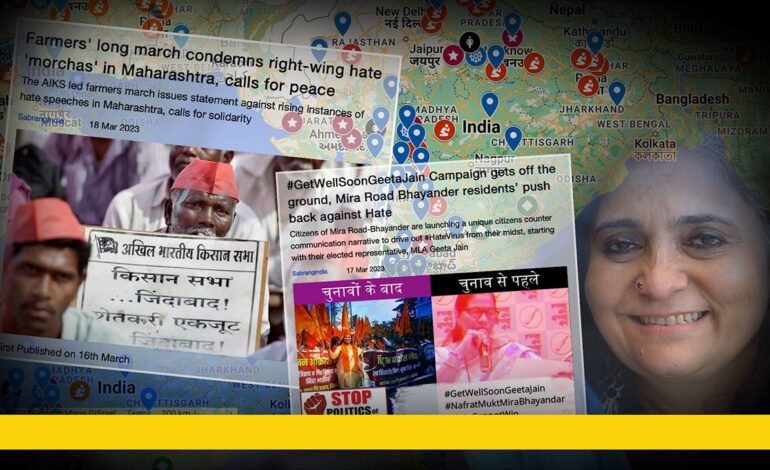
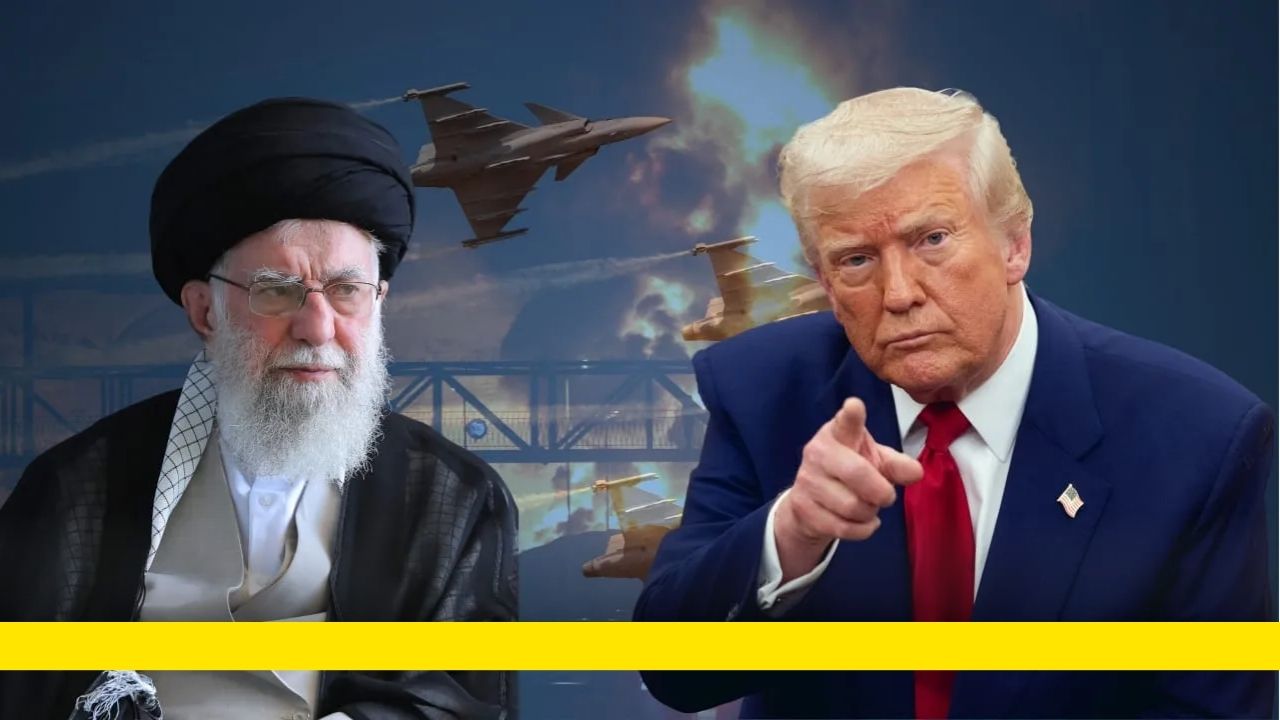

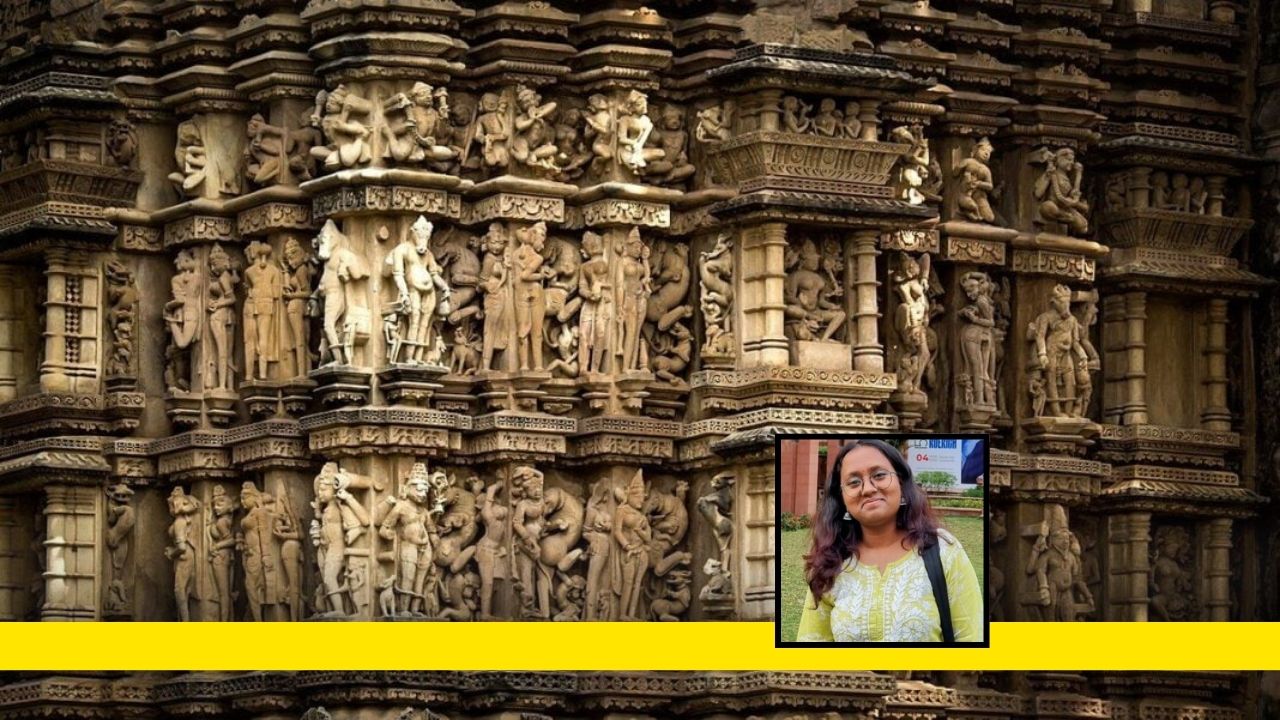
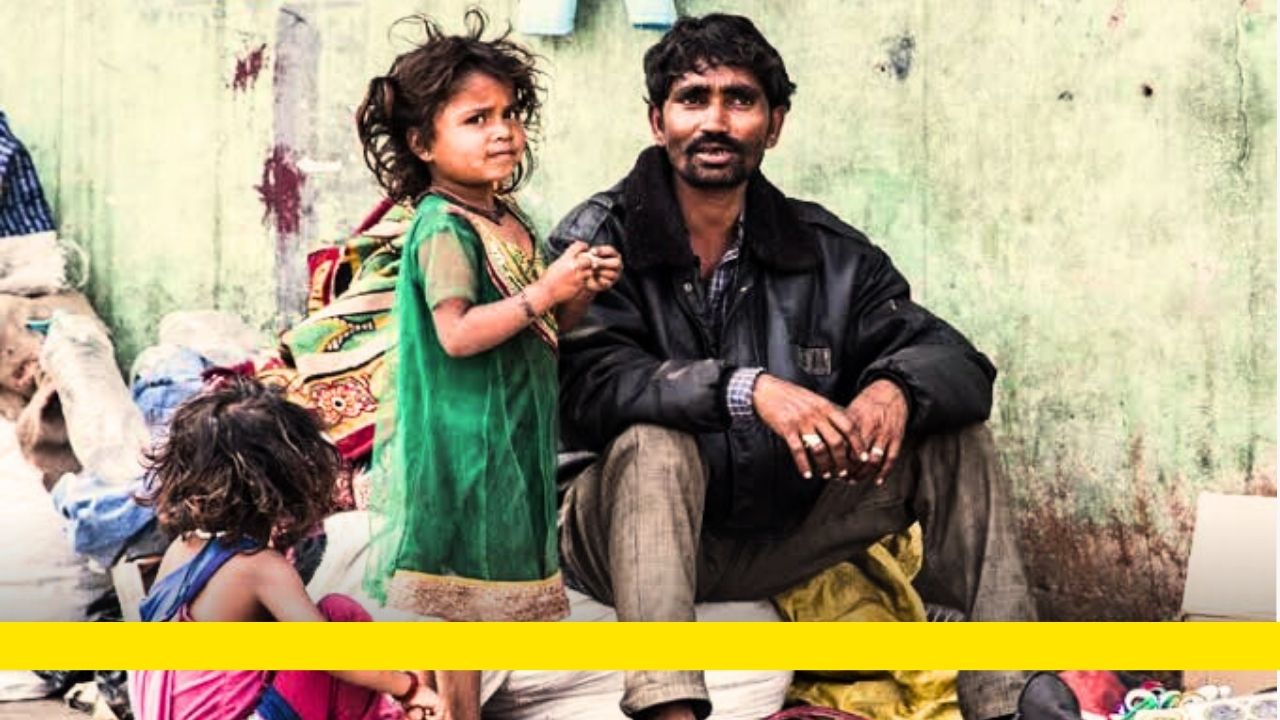


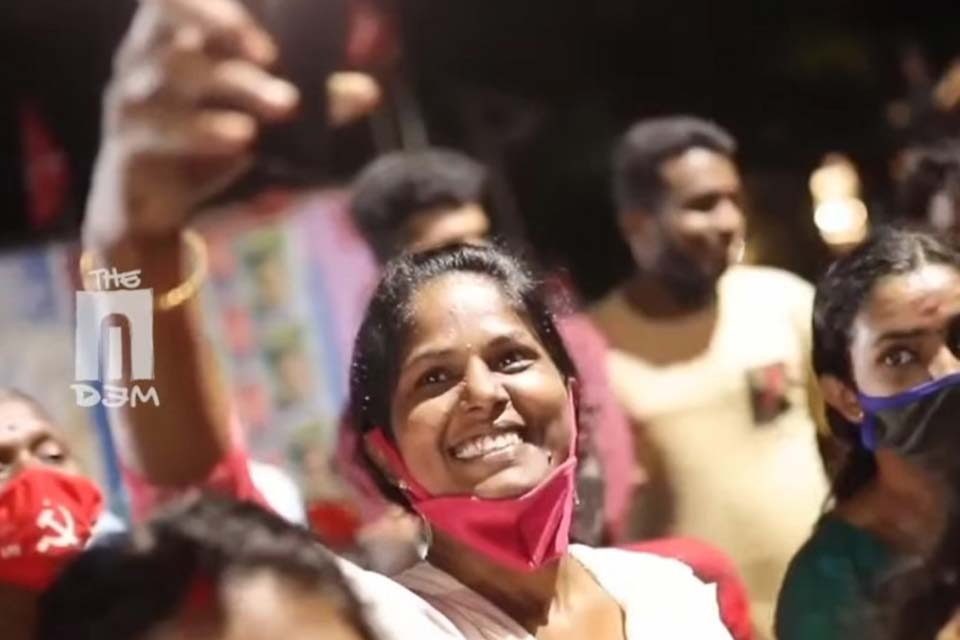

Thank you Divya for this excellent article